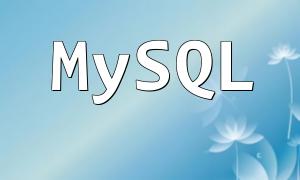Protocol Buffers (ProtoBuf) is a lightweight and efficient data exchange format developed by Google. Compared to XML or JSON, ProtoBuf offers faster serialization and deserialization speeds, along with a smaller data size, making it particularly suited for network communication and data storage.
Before using ProtoBuf, you first need to install the ProtoBuf extension for PHP, which provides the tools for encoding, decoding, and other ProtoBuf operations.
pecl install protobufOnce installed, don't forget to add the following line to your php.ini file to enable the ProtoBuf extension:
extension=protobuf.soProtoBuf uses a structure file to describe the data model, similar to the schema of XML or JSON. Here’s a simple structure definition example:
// example.proto
syntax = "proto2";
message Person {
required string name = 1;
required int32 age = 2;
repeated string hobbies = 3;
}This example defines a message named Person with three fields: name (string), age (int), and hobbies (array of strings).
ProtoBuf provides a code generation tool that converts the structure file into PHP classes. Use the following command to generate the PHP code:
protoc --php_out=. example.protoAfter running the command, the file example.pb.php will be generated, containing the corresponding PHP classes and methods.
In PHP, you can use the generated PHP classes to encode and decode data. Here’s a simple example:
require 'example.pb.php';
// Create a Person object
$person = new Person();
$person->setName('John Doe');
$person->setAge(30);
$person->addHobbies('Reading');
$person->addHobbies('Swimming');
// Encode the Person object into binary data
$data = $person->serializeToString();
// Output the encoded data
echo "Encoded data: " . base64_encode($data) . "\n";
// Decode the binary data into a Person object
$decodedPerson = new Person();
$decodedPerson->mergeFromString($data);
// Output the decoded data
echo "Decoded object:\n";
echo "Name: " . $decodedPerson->getName() . "\n";
echo "Age: " . $decodedPerson->getAge() . "\n";
echo "Hobbies: " . implode(', ', $decodedPerson->getHobbies()) . "\n";This code shows how to create a Person object, set field values, encode the object into binary data, and perform decoding operations.
ProtoBuf is particularly suited for transmitting data across networks, especially when dealing with large amounts of data. Its fast serialization and deserialization methods can help save bandwidth and improve transmission speed.
Due to its compact format, ProtoBuf is ideal for caching data. Using ProtoBuf to store data requires less storage space compared to other formats, making it efficient for caching and persistent storage.
ProtoBuf supports multiple programming languages including PHP, Java, Python, and more, making it convenient for cross-platform and cross-language data exchange.
ProtoBuf is a lightweight, fast, and efficient data exchange format. The ProtoBuf extension for PHP enables encoding, decoding, and other functionalities within PHP. Using ProtoBuf in PHP involves installing the extension, defining structure files, and generating code. ProtoBuf can be applied in network communication, caching, and cross-language data exchange to optimize data transmission and storage efficiency.









